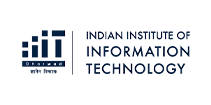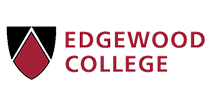Best Computer Courses After 12th: Choose the Right Path for a Tech Career
Have you recently completed your 12th and are wondering what to do next? If you are interested in technology or curious about how applications, websites, or AI are developed, then opting for Computer Courses may be a good option for you. The world is going digital at high speed, and therefore, computer skills are in high demand as an essential requirement for every industry. Start-ups, tech companies and any career in the 21st century requires entrepreneurs who are skilled in navigating digital trends and the virtual world.The best part is that it can often be pursued without a four-year university degree. Whether you are pursuing a full program, a short diploma program, or a short course to get more skilled, there are options for each individual. In this blog, we will unlock various types of courses around computers, help you figure out which one aligns with your future goals, and share some exciting and rewarding careers that are available in the tech sector.
Why Choose Computer Courses After 12th?
In today’s technology-focused society, being equipped with computer skills is now a necessity, more than just an asset. If you aspire to create software, design websites, compile reports or help manage computer systems, then you should look into computer courses that can launch several careers with the right skill set. These are practical skills that the market actively looks for, regardless of the industry.The flexibility and scope of computer courses after 12th is a key reason, making it attractive to a diverse audience. There are degree programs, practical diploma programs, and short-term certificates based on your available time, interest level and career goals. Additionally, with the increase in digital offerings, many of these computer courses are being offered online from the comfort of your own home.
If you have a passion for problem-solving, creativity, and staying up to date with new technologies in the field, a computer course after the 12th might be the factor to launch you into a new career.
Types of Computer Courses After 12th: An Overview
After you finish the 12th grade, you’ll have several options for computer courses for varying skill levels and career plans. These courses will often be broken down into 3 categories: degrees, diplomas, and certificates, each offering a different experience and path.
First, degree courses such as BCA, B.Sc. in Computer Science, or B. Tech in IT are extensive program generally spanning 3-4 years. These courses are an excellent route for students interested in studying computer applications, programming, and systems.
On the other hand, diploma courses will typically be 1-2 years long and focus on starting employment skills that can be applied directly to the workforce, such as web development, graphic design, and hardware networking. These are great options for students seeking to find jobs sooner.
Whereas, certificate courses will be much shorter, generally offered in short-term sessions over a few weeks or months, where they focus on one particular tool or technology, such as Python, Java, or full-stack development. These can work well for students to upgrade their skills in a few weeks or so and help supplement a degree program.
Regardless of your area of interest in the field of computer science, whether software, networking, AI or digital designs, there is a computer course made to help put you on a successful path.
Top Degree Computer Courses After 12th
If you are searching for an academic route in the field of technology, degree programs provide a solid introduction to the subject. Not only do these programs present to you with theoretical knowledge, but you will also encounter hands-on learning, projects and possible internships.
1. BCA (Bachelor of Computer Applications)
This is a popular option for students wanting to pursue software development, programming, and even application design in their degree. BCA is an undergraduate degree program lasting 3 years that studies topics such as database management, web development, programming languages and others. This program is generally accepted as being suited for students who aim to work for IT or software companies in the future.
2. B.Sc. in Computer Science
A B.Sc. focuses a little more on computing scientifically or mathematically. Students will learn about algorithms, computer architecture, machine learning and more. Suitable for students who are analytical and enjoy coding and systems.
3. B.Tech in Computer Science
A 4-year degree in engineering that includes software and hardware. B.Tech is best if you want to work in tech engineering, development, or system architecture. It typically also has courses related to AI, Cloud Computing, Cybersecurity, etc.
4. B.Sc. in Data Science, Artificial Intelligence or Cybersecurity
If you want to pursue a degree in an area that has future potential, these B.Sc. programs may be a great alternative. They emphasise areas like Artificial Intelligence, data analytics, ethical hacking, and cybersecurity, which will become increasingly popular over the next few years.
5. Bachelor of Technology in Information Technology (IT)
Provides extensive exposure to databases, networking, software tools, and web technologies. Useful for IT support and development roles.
Popular Diploma Courses in Computers After 12th
If you are looking for a program where you can quickly gain technology skills and join the workforce sooner, opting for diploma programs after 12th are a smart option. These programs usually last 6 months to 2 years and focus more on practical application than in-depth theory, perfect for getting started in a skill-based position or freelancing.
1. Diploma in Web Development
This program teaches you the fundamental principles of building a website or web application. You will learn front-end programming languages such as HTML, CSS, and JavaScript, and may also touch on back-end development with PHP or databases. This is a good choice for students who want to end up as web designers or full-stack developers.
2. Diploma in Graphic Design
If you are a creative person, this program studies visual communication tools using Adobe Photoshop, Illustrator, and Coreldraw. Students will learn everything from branding to the basics of UI/UX design, paving the way to a career in digital media, advertising, or web design.
3. Diploma in Networking or Hardware Engineering
The primary goals of this training program include computer hardware, network installations, troubleshooting, and introductory cybersecurity. This program is intended for students interested in becoming IT Support, systems administration, or working behind the scenes to keep things running smoothly.
4. Diploma in Mobile App Development
Covers how to develop Android and iOS applications using frameworks like Flutter or React Native. Continues to be very sought after with business models oriented toward mobile phones.
5. Diploma in Cloud Computing (AWS, Azure)
Learn how to work in cloud environments that are used to deploy, scale, and manage applications. This diploma program is highly valuable to industries.
Best Certification Courses After 12th in Computers
Certification courses after completing 12th grade are a great way to expand skills in a short time to expand skills or focus on your area of technology. Certification courses typically take 3-6 weeks to 3-6 months and can be taken alongside college or a job. They are flexible and provide industry-related work experience.
1. Python Programming
Python is one of the easiest programming languages for beginners to start learning, and it is in high demand today. It will teach the basics of programming, such as variables, loops, and functions, but will also teach additional topics like data structures and automation. It is a great introduction to programming for developers, data analysts, or anyone interested in AI.
2. Java Programming
Java is commonly used in Android development and Enterprise applications. Java has been in place for years and is a solid choice. In Java Certification, you will learn object-oriented programming, how to build applications, and how to think about the backend of your logic; all foundational skills if you are targeting Software or App development.
3. Full Stack Development
This course includes front-end and back-end technologies for web development. You will learn technologies such as HTML, CSS, JavaScript, Node.js, and one or two databases. This entire course provides full-stack analysis, so you will be able to complete projects on the web. You will certainly be prepared for the sole proprietor lifestyle or startup.
4. Certification in Ethical Hacking
Concentrates on penetration testing, vulnerability analysis, and cybersecurity protocols. Great for white-hat hacking roles.
5. Certifications in Computer Hardware and Networking
Good for those interested in building PCs, managing physical devices, and configuring and managing security and networking protocols.
How to Choose the Right Computer Course After 12th?
With so much opportunity in the technology arena, selecting the right stream of study is dependent on your intended outcome with education and career plans. If you want a full-degree course or a shorter specialist course, a timely and diligent decision will inform your success moving forward. Here are the most important ways to focus your selection:1. Determine What You Enjoy:
Think about what really excites you: coding, design, data, or technical troubleshooting? Your innate interests will help strengthen a course of study.
2. Decide on Career Objectives:
If your goal is to become a practising developer or if your career aspirations lead you to postgraduate studies, degree programs like B.Tech or BCA will be the best choice. If your goal is to land jobs quickly, diplomas and certifications work very well.
3. Consider Time and Learning Format:
Degree programs are typically 3–4 years, while diplomas and certificates are typically shorter. Additionally, if you really enjoy classroom learning formats, consider that. There are also a lot of online or hybrid modalities available.
4. Research Industry Demand:
Check job opportunities in particular areas. For example, positions in areas such as data science, cloud computing, cybersecurity, or AI will continue to have a large demand for professionals as those areas grow exponentially.
5. Budget and Flexibility:
Keep in mind the reflective student loans or scholarships available for particular programs - you don't have to pay upfront. You may also want to explore part-time programs based on your ability and if you have work or other commitments.
Career Opportunities After Computer Courses
Taking a computer course after the 12th can lead to a great variety of career opportunities in every industry. When you pursue your career, whether it is a degree, diploma or certification, there are job roles available in the technology sector that match your interests and skill level.
1. Software Developer / Programmer
A software developer or programmer designs and develops applications for web, mobile, or desktop. This role suits those who have strong coding skills and enjoy inventing network applications.
2. Data Analyst / Data Scientist
If you enjoy transforming and interpreting complex data to assist companies in becoming more data-driven and intelligent, this job role is the right choice for you. To become a data analyst or data scientist, you should have an understanding of all data tools and their preparation, along with knowledge of Python and statistics.
3. Web Developer / Full Stack Developer
A web developer creates user-friendly websites and applications, whereas a full-stack web developer does both front-end and back-end coding work.
4. IT Support / System Administrator
As an IT support or IT system administrator, you will maintain the computer systems, mitigate hardware and software problems, and support the operational technology infrastructure of your company. These roles are critical for companies to function smoothly.
5. Cybersecurity Analyst
As a cybersecurity analyst, you will determine ways to protect digital systems from hackers and data breaches. Cybersecurity roles have become very important in different industries.
6. Higher Education & Course Certifications
You can also further your education with an MCA or an M.Sc. in Computer Science or complete a certification in AI, Cloud, Ethical Hacking, or others to continue your career path.
Conclusion
If you are a technology enthusiast who wants to create a future in technology, selecting the best computer course to follow after 12th grade can enable a bright future. There is a range of computer courses to consider – a full-fledged degree, a three-year diploma, or a certification course for a swift introduction.You can choose the course of computer study that aligns well with your career aspirations and your learning style. The best part of working in this technology space is that it is always changing. Therefore, there is always an opportunity for you to learn, grow, and work in areas of interest.
Whether you want to study app development, become a data analyst, or work as a network security professional, there is a course for you. Do not stress! Begin simply with the prospect that interests you the most, evaluate your goals, and take the next step in the digital world.
Frequently Asked Questions
1. What is the best degree course after 12th in the computer field?That would depend on one’s career aspirations and goals. If you want a future in software roles, BCA or B. Tech is a good option. For quick skill acquisition, diplomas and certification courses could be taken.
2. Can I pursue computer courses without Maths in the 12th?
Yes. BCA or any of the diploma or certification courses will not require maths to be a prerequisite.
3. Are online computer courses after the 12th still worth it?
Yes, many online computer courses through reputable platforms and universities are identified with recognition in the industry and would be relevant to your career goals and would be flexible.
4. What are the career options after a computer course?
Depending on your skills, you could get a position such as software developer, data analyst, UI UX designer, ethical hacker, IT Support, and many other job roles.
5. How long does it take to gain a certificate in computers?
Most certifications take 3 - 6 months; however, it may take up to one year to be considered an advanced certification focusing on depth and specialisations.
Trending Posts
-
How Much Do BCA Graduates Earn? Salary & Career Path Explained
-
Everything You Need to Know About O.P. Jindal University Online Programs
-
S.P. Jain School of Global Management: Online Programs That Work for You
-
Explore Amrita AHEAD: Your Guide to Amrita University’s Online & Distance Programs
-
Jamia Millia Islamia Online & Distance Courses 2025 – A Student’s Guide
-
Understanding NIRF Rankings: Significance, Impact, and Future Scope
-
Annamalai University Distance Education: UG, PG, Diploma Courses & Admission 2025
-
Confused About GPA to Percentage? Here’s How to Convert It!
-
Amity Online University: The Ultimate Guide for Your Higher Education
-
How to Choose the Right Stream After Class 10: A Complete Guide
-
IGNOU Distance & Online Learning Programs 2025: Everything You Need to Know
-
MBA in Travel and Tourism Management in Chandigarh University Online
-
Top 5 Online MCA Colleges in India in 2025
-
What Comes After B.Com? The Ultimate Guide to Career-Building Courses in 2025
-
Mastering Online Exams in India: A Comprehensive Guide to Procedures, Benefits, and Preparation































































